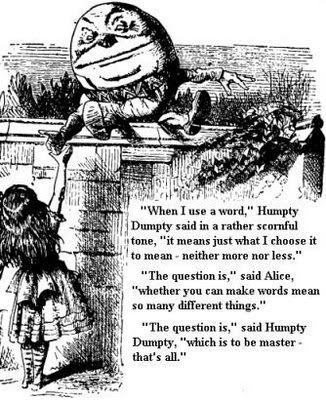COSLA, the Convention of Scottish Local Authorities, is the representative voice of Scottish local government and also acts as the employers’ association on behalf of all 32 Scottish Councils. I didn’t write that. It is what it says on the COSLA web site.
 |
| 'voice of Scottish local government' |
Seems straightforward, doesn’t it? Speaks for 32 Councils when something important needs said. Good idea. Tidy. Transparent. Accountable. Good for democracy.
Well, maybe not.
Late last year our Brigadoon-loving government consulted on changes to its plans for specific equality duties in Scotland. I have previous form on this subject and you will find lots of context to this elsewhere in the blog.
Copies of who said what on the draft specific duty proposals are available to insomniacs to read via this link.
A big issue on which public bodies [including 32 Councils] will have to seriously up their game in these specific equality duties is in how they gather data on their workforce, how they analyse it to identify where and how they are discriminatory as employers, and what action they will take to eliminate the discrimination, and deliver evidence of equality of opportunity for all people who routinely encounter discrimination in Scotland. They will need to do this in partnership with people who encounter discrimination and publish what they are doing so that they cannot hide behind the usual closed doors of public sector decision making.
Seems straightforward, doesn’t it? Good idea. Tidy. Transparent. Accountable. Good for democracy.
In the consultation last year, question 8 asked :
Do you agree that authorities subject to the specific duties should be required to report on progress on gathering and using employment information, including an annual breakdown of information gathered, within the mainstreaming report.
And the cheerleading ‘voice of local government’ said ? In the third paragraph of their answer they said :
Councils also strongly believe that local context must be factored into any understanding of the data. Across Scotland, different local authorities serve very different communities, and are subject to different job markets, employment opportunities and other circumstances that will make any attempt at comparisons difficult and misleading. Because each is different, it is very unlikely that one standard reporting format will therefore be possible. [my italics]
 |
| COSLA cranked up the ‘Jaws’ theme music to 11, clutched its lavendar-drenched lace doily to its dowager bosom, and gasped for the smelling salts to be rapidly uncorked |
We also consider it imperative to avoid a situation that allows for ill-conceived league table style analysis between councils.
Something about this strident protesting on the part of COSLA started to smell whiffy and iffy. I dug further. Initially, I did a quick compare and contrast between COSLA’s response and that of four randomly selected Councils – Glasgow, Dundee, Edinburgh and Midlothian. You can read this analysis for yourself via this link.
None of those four Councils agreed with COSLA on the dangers shrieked out in answer to question 6. All said yes to the proposal. Two of the four called for guidance, and one said they ‘fully supported the approach set out’.
On question 8, where COSLA counseled against standard reporting formats and said comparisons would be ‘difficult and misleading’, the four Councils took a different view and agreed with the government’s proposal, and with Midlothian Council saying explicitly :
‘The introduction of a standardised reporting template would be beneficial as it would greatly help when comparing and benchmarking against other public bodies.’
By now I was needing to throw open all the windows to dispel the thickening stench of disinformation rising, steaming, from the COSLA pages. Just who were they speaking for? Clearly not these four randomly sampled Councils.
I kept the windows wide open, wrapped myself in my sheepskin-lined denim jacket, topped off with my leather, and a scarf, and started digging through the festering pile of consultation responses. The sacrifices I make in the name of transparency and accountability. There were 22 responses from Councils. I built a simple analysis of what they said and you can read that via this link.
Out of those 22 Councils, ten offered an explicit comment similar to this one from Aberdeen in response to question 8 :
‘We would propose that consideration is given to a standardised reporting template for local authorities so as to enable ease of comparison and benchmarking between local authorities.’
I could find nothing remotely resembling the hysterical warnings of COSLA in any other Council’s response.
Being a reasonable kind of person, I asked one of the four Councils who the COSLA bell tolled for if it did not speak for them, pointing out the differences in responses. I got an exquisitely and delicately be-jewelled Faberge-egg construct of double-speak back, and even that was only after I was forced to explain who I was and who had commissioned my analysis before the Council staffer would respond to my basic question.
 |
| an exquisitely and delicately be-jewelled Faberge-egg construct of double-speak |
Being unwilling to flog long-expired Metropolitan Police resources, I have closed my windows, buried the COSLA response in the recycling dump, and passed my analysis map on the whereabouts of this toxic mess over to the Cabinet Secretary for Health, Equality, and Cities [but not equal pay] and asked her to ensure that her government’s own analysis to the responses takes a peek, from within the safety of a gas mask, at the dubious provenance of the COSLA response.
And next time you are watching or listening to local news bulletins in Scotland, have waded through the latest murder story or Glasgow football news, and hear a COSLA spokesperson declare that local government thinks this, believes that, or might even if the wind is in the right direction deliver small miracles, just remind yourself of what you have read here today.
No comments:
Post a Comment